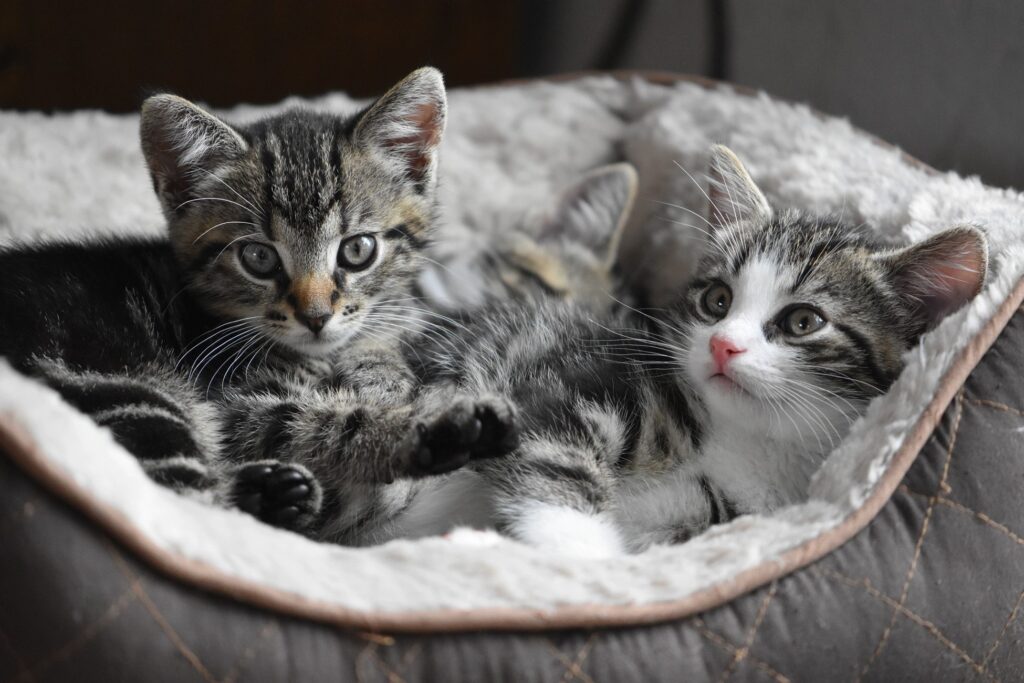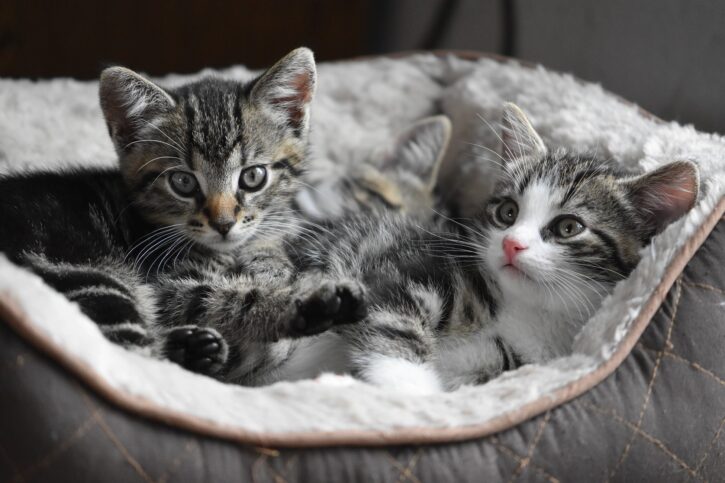
Top 5 Foods To Cure Abdominal Pain In Cats
Sometimes cats manifest some digestive issues characterized by stomach upset and abdominal pain. A change in their diet can help soothe the discomfort. However, there is no magic food for cats suffering from abdominal pain. Veterinarians usually advise high fiber, high protein foods.
Sometimes, your vet might also prescribe some supplements for your cats to help alleviate stomach distress. Some pet owners have also experienced good results by including the best CBD gummies for pets in their cat’s diets. This article will discuss five foods commonly recommended by vets for cats suffering from abdominal pain.
What Type of Food Should You Give a Feline With Abdominal Pain?
1. Food With Minimal Additives
Sometimes cat foods contain additives that might worsen Irritable Bowel Diseases or other abdominal issues in cats. If your cat is under stomach distress, pick foods free from additives. Avoiding additives will also help protect the natural immunity of your cat’s gut.
2. Highly Digestible, Low Residue Diets
Veterinarians often recommend moderate protein, low fat, and low carbohydrate diets for cats with abdominal pain. High fibrous food also helps improve gut health. Animal nutritionists also advise giving your cat food with high moisture content instead of dry kibbles. These foods are easily digestible by cats and help to soothe stomach distress.
3. Novel Protein Diet
Vets often recommend giving a diet comprising novel protein foods like rabbit or duck meat. High protein meat such as beef, whole fish, and chicken might aggravate abdominal pain in cats. Also, caregivers need to ensure that the foods are free from common cat allergies.
Top 5 Foods To Cure Abdominal Pain in Cats:
1. Chicken Broth
Chicken broth is prepared by boiling chicken pieces in water and some mild spices. It is rich in amino acids like glycine, which can benefit cats with stomach distress. It helps eliminate toxins that might have accumulated in the liver and thus, helps relieve abdominal pain due to liver problems.
Chicken broth also contains collagen that helps strengthen your cat’s digestive tract and prevent harmful bacteria from invading the intestines. It also helps to boost your cat’s immunity and enables them to prevent microbial infections that affect the digestive system.
2. Fermented Fish Stock
Fermented fish stock is rich in anti-inflammatory amino acids. These amino acids can help relieve inflammatory bowel syndrome. Fish stock can also benefit cats with abdominal pain due to kidney issues. The high amount of Omega fatty acids in Fish stocks can also help in boosting your cat’s gut immunity.
Some fermented fish stocks available as over-the-counter supplements contain gelatin. Gelatin helps form a protective layer inside your cat’s intestine that protects the gut from harmful bacteria. It also helps relieve leaky gut syndrome and colitis and thus, reduces abdominal pain.
3. Probiotics
Probiotics supplements are essential for maintaining and boosting the immunity of your cat’s digestive tract. Probiotics are food comprising healthy, gut-friendly bacteria that help to relieve abdominal pain, vomiting, diarrhea, and even decreased appetite.
Fur ingested while grooming can also lead to Inflammatory Bowel Syndrome. Probiotics rich in bifidobacteria and enterococci helps to promote digestion, facilitate the formation of normal feces and maintain colonic health.
Probiotics are available as capsules and powders. If your cat is not willing to swallow the pills, you can mix probiotics in your cat’s food. Probiotics will help repopulate the gut flora if your cat is under antibiotics. However, before you give any probiotic supplement to your cat, consult your veterinarian to know the suitable dosage for your pet.
4. CBD Supplements
CBD supplements are non-psychoactive edible products manufactured from CBD extracts from the Cannabis plant. It interacts with the endocannabinoid receptors present in the digestive system and helps boost the immunity of your cat’s gut.
Studies indicate that CBD has excellent anti-inflammatory properties that might help relieve intestinal inflammations. Its pain-relieving qualities help to alleviate abdominal pain caused by chronic inflammation. Some evidence also suggests that CBD can help relieve ulcerative colitis. Besides improving digestive health, CBD supplements like oils, tinctures, and soft chews can also help improve appetite and reduce stress and confusion in older felines.
Some cat parents believe that CBD oil has helped enhance the overall wellness of their fur babies. CBD can also help treat skin infections and allergies. Pet owners must consult their vet before incorporating CBD supplements into their pet’s diet.
5. Pumpkin Puree
Pumpkin is often regarded as the best cure for abdominal distress in cats. It is rich in dietary fibers, which are suitable for the digestive health of your feline friends. The fibers present in it absorb excess water and help firm the stool. It can help relieve constipation by facilitating better bowel movement. If your cat has diarrhea, pumpkin puree can be beneficial too.
It is common for your cat to eat up fur while licking himself. These furs can cause hairball in the stomach and lead to abdominal pain. As pumpkin moves down your cat’s gastrointestinal tract, it sweeps the furs along with it and lowers the risk of hairball formation.
You can buy canned pumpkin puree or make them at home. Mix no more than one tablespoon of pumpkin puree in your cat’s wet food. Pumpkin is also a prebiotic that helps enhance the proliferation of good intestinal bacteria and inhibits the growth of harmful bacteria to promote digestive health.
How to Know Whether Your Cat is Suffering From Abdominal Pain?
Abdominal pain in cats does not always exhibit any definitive sign. Thus, it might be difficult for pet parents to understand that their cat suffers from stomach pain. Here are some common signs that might indicate that your feline has abdominal pain.
- Vomiting
- Diarrhea
- Loss of appetite
- Blood in feces
- Difficulty urinating
- Change in posture
- Tenderness/pain when touched
- Weight loss
- Hiding away
- Fast or irregular breathing
What Can Cause Stomach Pain in Cats?
Abdominal pain can occur due to several reasons. Here are some common reasons that can cause abdominal pain in cats:
- Inflammation in pancreas
- Liver diseases
- Constipation
- Cancer
- Poisoning
- Ruptured bladder or Urinary obstruction
- Food intolerance
- Kidney stones
- Fluid buildup in the stomach
- Bacterial, Parasitic, Viral infection
- Intestinal obstruction
- Inflammatory bowel disease
The Bottom Line:
Abdominal pain in cats can occur due to various reasons. While some are mild and get cured soon, some stomach issues can be severe and take time to heal. A change in diet can help facilitate fast relief of stomach pain. However, pet parents should remember that a change in diet is not a substitute for medical attention.








